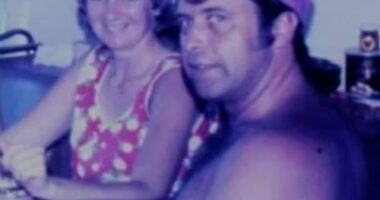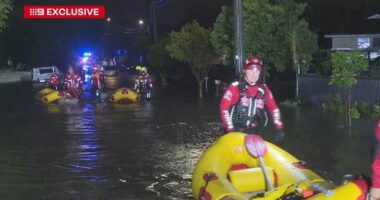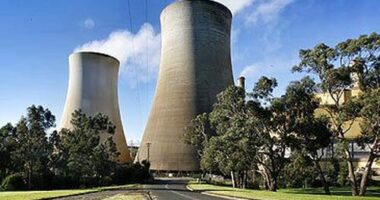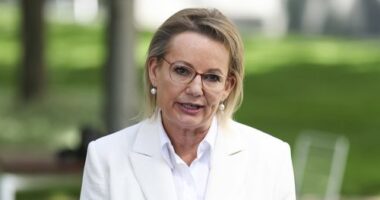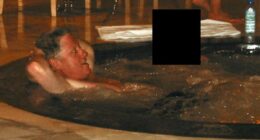Share this @internewscast.com
It all began in the year 1975. Two radio stations, at that time referred to as 2EA in Sydney and 3EA in Melbourne, aired for the very first time. The initial broadcasts featured seven languages on 2EA and eight languages on 3EA, with Greek being the first one aired. SBS Managing Director James Taylor remarked, “SBS has consistently stood by multiculturalism in Australia.” He noted that the network emerged from a concept conceived by the Whitlam government and executed by the Fraser government in 1975. Fraser had expressed that multiculturalism should be an active engagement rather than a passive act during that era.

SBS began in 1975 as two ethnic radio stations: 2EA in Sydney and 3EA in Melbourne. Source: SBS News
Domenico Gentile has been a journalist with the Italian program since 1977.
“I believe SBS actively adopts the idea of multiculturalism, facilitating a sense of belonging among all Australians—whether they are members of Earth’s oldest continuous culture or among the most recent arrivals to Australia—fostering an extraordinary narrative of diversity, collaboration, and mutual compassion,” Taylor explained.

Domenico Gentile from SBS Italian Credit: SBS.
Gentile sums up the impact of SBS in one word: “Immense”.
“We were fortunate to host numerous distinguished guests, including all the prime ministers, immigration ministers, premiers, and representatives from the Ethnic Affairs Commission,” he added. “Ensuring the success of the experiment that commenced on June 9, 1975, was crucial for us, as it meant securing the future of this vital radio and broadcasting station.”

Domenico Gentile collecting sound effects for a special program produced in collaboration with Italian broadcaster, RAI. Credit: Supplied.
Bringing audiences a slice of home, SBS has long been the champion of football.
“I can guarantee you that football has been our lucky charm.”

Johnny Warren and Les Murray were iconic figures in Australian football and on SBS. Source: SBS News
‘A sense of belonging’
“You had this community which was established here in Australia, and all of a sudden they realised, ‘I’m not the only Maltese in Australia’, there are hundreds, there are thousands …. they started going to these events and they started meeting each other, so [SBS Radio] was a big influence on the Maltese community.”

Joe Axiaq from SBS Maltese arrived in Australia in the late 1970s. Credit: SBS.
He says this connection to the community and between community members formed a strong attachment to the program for many.
“There is this sense of belonging. This is ‘our’ radio station, this is ‘our’ program.”

Joe Axiaq broadcasting on Melbourne’s 3EA. Credit: SBS.
The introduction of television
SBS television launched in 1980. Today, SBS is a multi-platform media organisation with a free-to-air service spanning six channels: SBS, NITV, SBS Viceland, SBS Food, SBS World Movies and SBS World Watch — as well as its digital offerings on SBS On Demand.
“We are the podcaster of the year, three years in a row.”
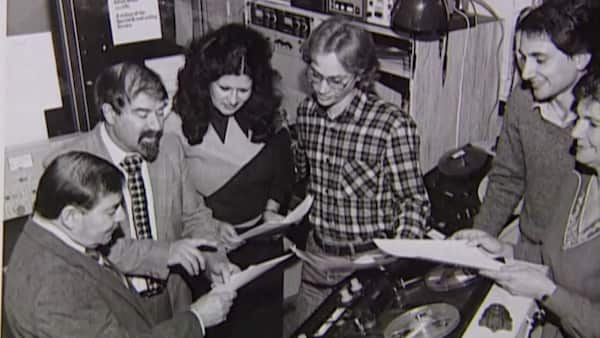
“Particularly multicultural and new Australians are hungry for these stories and really want to learn more about the First Peoples of the country that they’ve come to call home.”

NITV presenter Natalie Ahmat at the Garma Festival.
50 years on, SBS Audio broadcasts in more than 60 languages, chosen on a needs-basis, informed by the census.
“They get exploited and they have very little or no English and they really need SBS Malay to navigate their way through their new homeland.”

Zaini Ahmad from SBS Malay. Credit: SBS
In 2025, SBS holds a unique place in the Australian media landscape.


